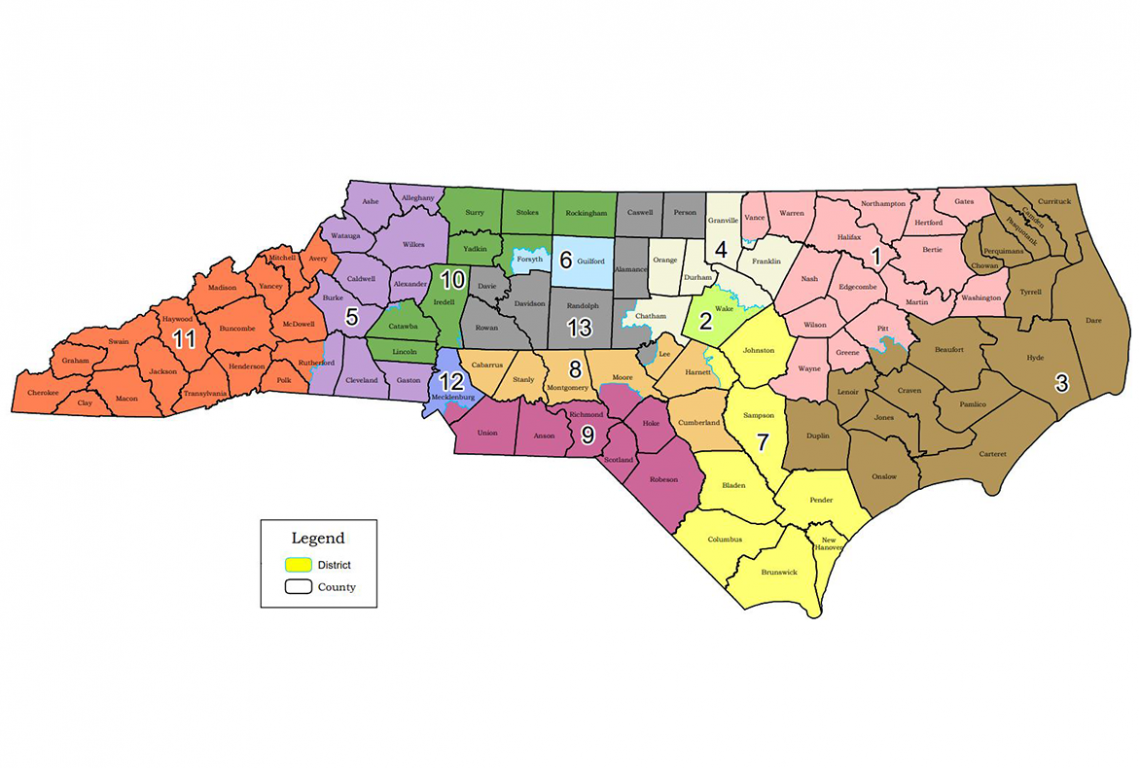The Past, Present and Future of Redistricting in North Carolina and Beyond
Conference will examine redistricting's impacts -- and what can be done about them

Scholars, practitioners and advocates will examine the legal and political landscape of redistricting, preview the ongoing process in North Carolina and around the country, and discuss reforms during a conference Sept. 28-29 at Duke.
“Redistricting and American Democracy” will also give Duke students and the general public an opportunity to learn how redistricting will impact them -- and what they can do about it.
Attendance at in-person events is limited to individuals with a Duke ID plus invited guests. All events will also be live-streamed, and this option is open to the public. There is no cost to attend. Register for the conference here.
The opening day will include leading national experts and advocates discussing the legal and political landscape of redistricting nationally, reviewing the litigation and reform efforts of the past decade and previewing the current decennial redistricting cycle.
Judge James Wynn of the U.S. Court of Appeals for the 4th Circuit will give the keynote address on Tuesday, Sept. 28, at 5:30 p.m. In 2017, Judge Wynn authored a landmark decision in Rucho v. Common Cause that invalidated North Carolina’s congressional map as an unconstitutional partisan gerrymander, but the U.S. Supreme Court ultimately overturned the decision, ruling that partisan gerrymandering is outside of the purview of federal courts.
Judge Wynn’s hybrid talk, “The Role of Judges and Justices in Redistricting,” will address why he believes the Supreme Court’s 2019 redistricting decision in Rucho v. Common Cause is an example of judicial activism. Duke Law Dean Kerry Abrams will introduce the talk.
The second day of the conference, Wednesday, Sept. 29, will include a virtual discussion on the advances in quantitative analysis and computational science that have given policymakers, judges, and advocates a set of powerful new tools to measure the impact of gerrymandering. Duke mathematician Jonathan Mattingly, who has served as an expert witness in Rucho and other redistricting litigation, is among the panelists for this session.
Day 2 will also focus on North Carolina, as the state’s General Assembly prepares to draw new electoral maps. During the interactive virtual session “How to Be a Redistricting Watchdog,” a redistricting consultant and investigative reporter will train participants on how to watch and interpret the map-drawing process as it is unfolding in real time.
The featured event for the second day of the conference will be “Building Bipartisan Support for Redistricting Reform” (hybrid), a moderated conversation between Tom Ross (president, The Volcker Alliance and co-chair of North Carolinians for Redistricting Reform) and Art Pope (chairman, John William Pope Foundation).
Additional sessions on Sept. 29 include “The State of Play in North Carolina” (hybrid) and “Where Do We Go from Here?” (hybrid), both of which will feature leading North Carolina-based scholars, legal experts and advocates. The first panel will focus on the current redistricting process in North Carolina, and the second will highlight the work of North Carolina-based advocacy organizations and offer ways audience members to get involved.
Find a full list of topics, speakers and sessions here.
“Redistricting and American Democracy” is being presented by Polis: Center for Politics at the Sanford School of Public Policy, and the Duke Math Department. Co-sponsors include the Duke Law School, Duke Department of Political Science, Duke Center for Computational Thinking, the Sanford School’s Hart Leadership Program, the Rhodes Information Initiative and the North Carolina chapter of the Scholars Strategy Network.